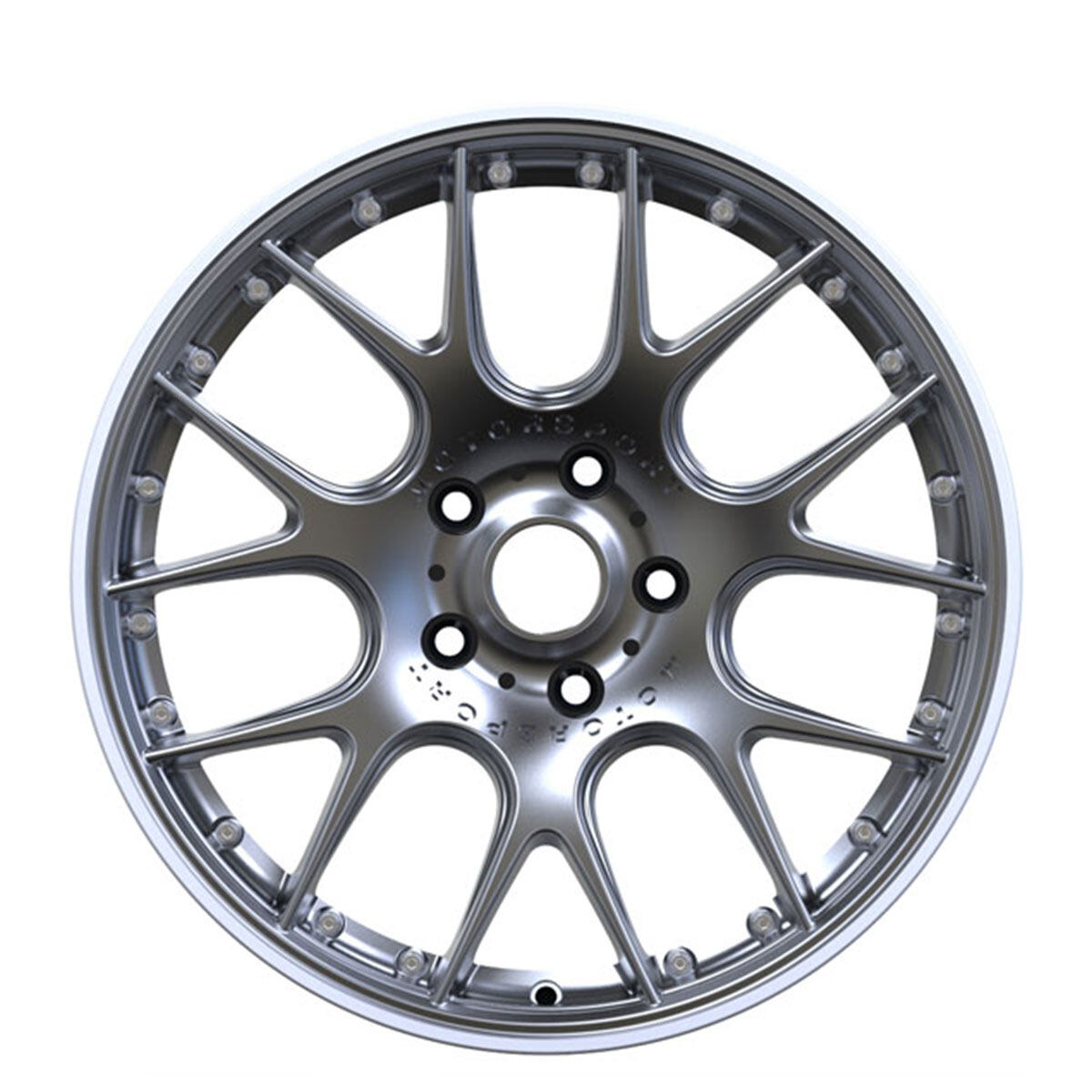Email format error
Email cannot be empty
Email already exists
6-20 characters(letters plus numbers only)
The password is inconsistent
Email format error
Email cannot be empty
Email does not exist
6-20 characters(letters plus numbers only)
The password is inconsistent
Wholesale Flow Forming Alloy wheel
Flow-forming alloy wheels have become increasingly popular in recent years due to their unique manufacturing process and superior performance. These wheels are known for their lightweight, durable construction and high-performance capabilities, making them an ideal choice for performance-oriented car enthusiasts.
In this article, we will explore the benefits and advantages of flow forming alloy wheels, as well as their manufacturing process and how they compare to other types of wheels.
Flow Forming Alloy Wheels Overview
Flow forming is a specialized manufacturing process that creates a high-quality wheel that is both lightweight and strong. The process involves taking a cast wheel and heating it up to a specific temperature before spinning it at high speeds on a specialized machine. The wheel is then stretched and formed into its final shape using a combination of pressure and heat, resulting in a high-quality alloy wheel that is both lightweight and strong.
Flow forming alloy wheels have become increasingly popular among car enthusiasts due to their unique manufacturing process and superior performance. Unlike traditional cast wheels, flow formed wheels have a tighter grain structure, which makes them stronger and more durable. This allows them to withstand higher stress loads and impacts without cracking or deforming, making them an ideal choice for high-performance driving.
Benefits of Flow Forming Alloy Wheels
One of the primary benefits of flow forming alloy wheels is their lightweight construction. This can help to improve the overall performance of a vehicle, as lighter wheels can reduce unsprung weight and improve handling and acceleration. Additionally, lighter wheels can also reduce the load on the suspension and braking systems, improving their performance and longevity.
Another benefit of flow forming alloy wheels is their durability. Because of their tight grain structure and unique manufacturing process, these wheels are able to withstand higher stress loads and impacts than traditional cast wheels. This makes them an ideal choice for high-performance driving, as they can withstand the rigors of track use and aggressive driving without cracking or deforming.
In addition to their performance benefits, flow forming alloy wheels are also available in a wide range of styles and finishes. This allows car enthusiasts to customize the look of their vehicle and create a unique appearance that sets their car apart from others.
Manufacturing Process
The manufacturing process for flow forming alloy wheels is a complex and specialized process that requires advanced equipment and skilled technicians. The process begins with a cast wheel that is heated to a specific temperature and placed on a specialized machine.
The machine then spins the wheel at high speeds while applying pressure and heat to the outer rim. This stretches and forms the wheel into its final shape, resulting in a wheel that is both lightweight and strong.
The final step in the manufacturing process is to apply a finish to the wheel. This can include painting, powder coating, or polishing, depending on the desired look and finish.
Comparison to Other Types of Wheels
Flow forming alloy wheels offer several advantages over other types of wheels, including cast and forged wheels. Compared to cast wheels, flow formed wheels are stronger and more durable, making them an ideal choice for high-performance driving. Additionally, flow formed wheels are also lighter than cast wheels, which can improve the overall performance of a vehicle.
Compared to forged wheels, flow formed wheels are more affordable while still offering many of the same benefits, such as lightweight construction and improved performance. While forged wheels may offer slightly better performance and durability, they are also significantly more expensive than flow formed wheels, making them less accessible to the average car enthusiast.
Conclusion
Flow forming alloy wheels are a popular choice among car enthusiasts due to their unique manufacturing process, superior performance, and wide range of styles and finishes. These wheels offer several benefits over traditional cast wheels, including improved strength, durability, and lightweight construction. While they may not offer the same level of performance and durability as forged wheels, they are still an excellent choice for high-performance driving and provide a more affordable option compared to forged wheels, making them a popular choice among car enthusiasts who are looking to improve the performance and appearance of their vehicles without breaking the bank.
If you are considering upgrading your vehicle's wheels, flow forming alloy wheels are definitely worth considering. They offer a unique combination of performance, durability, and style that is difficult to find with other types of wheels.
Custom Flow Forming Alloy wheel - 2022 New FF001
The material of a wheel has a very important influence on the overall weight and appearance of wheels. According to the different materials, it can be divided into steel, aluminum alloy and composite material. The composite material refers to carbon fiber; aluminum alloy is lightweight, strong and easy to process; and steel is durable but heavy. The appearance of aluminum alloy wheels is more beautiful than that of steel wheels, but its ability to release heat is less than that of steel wheels.

